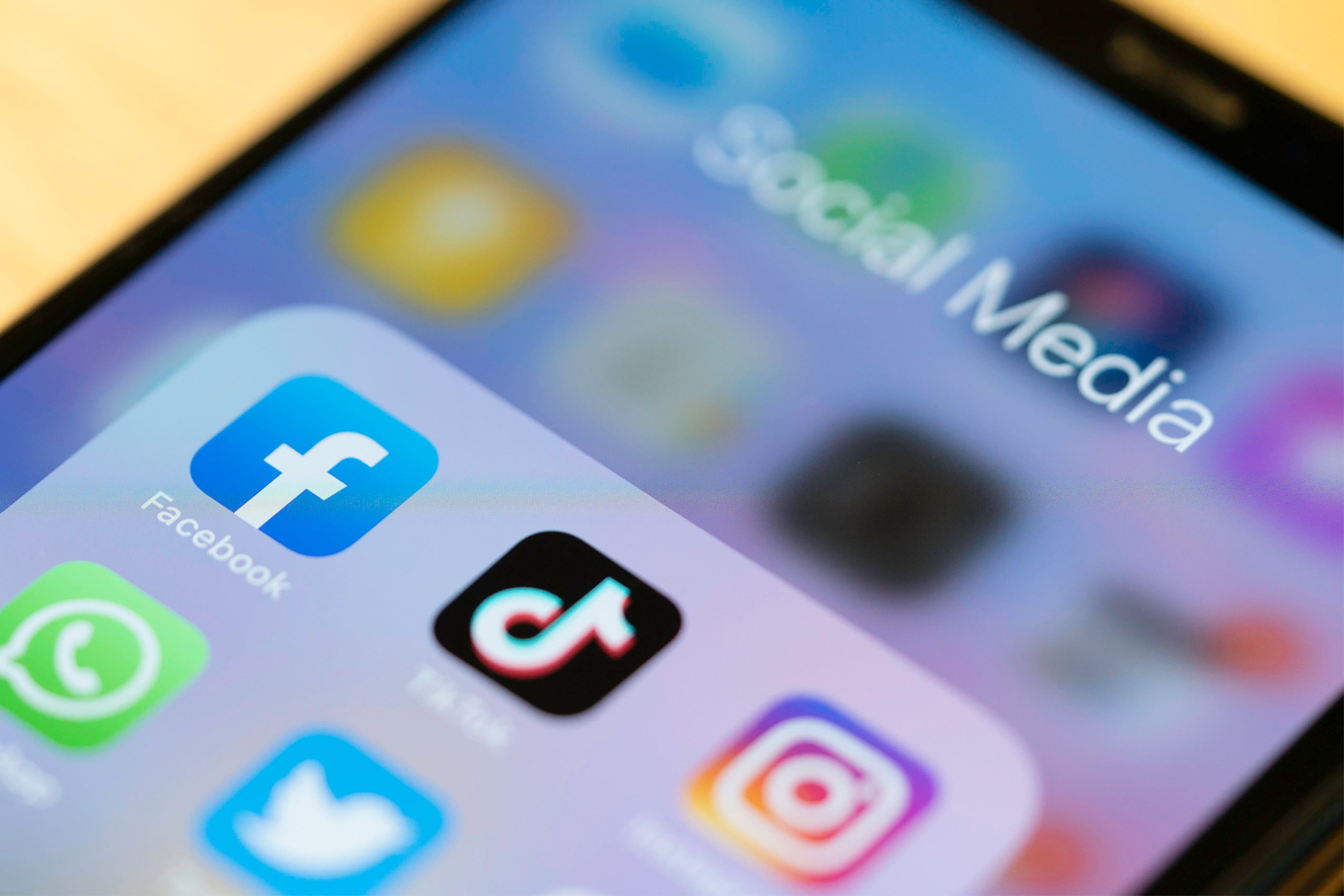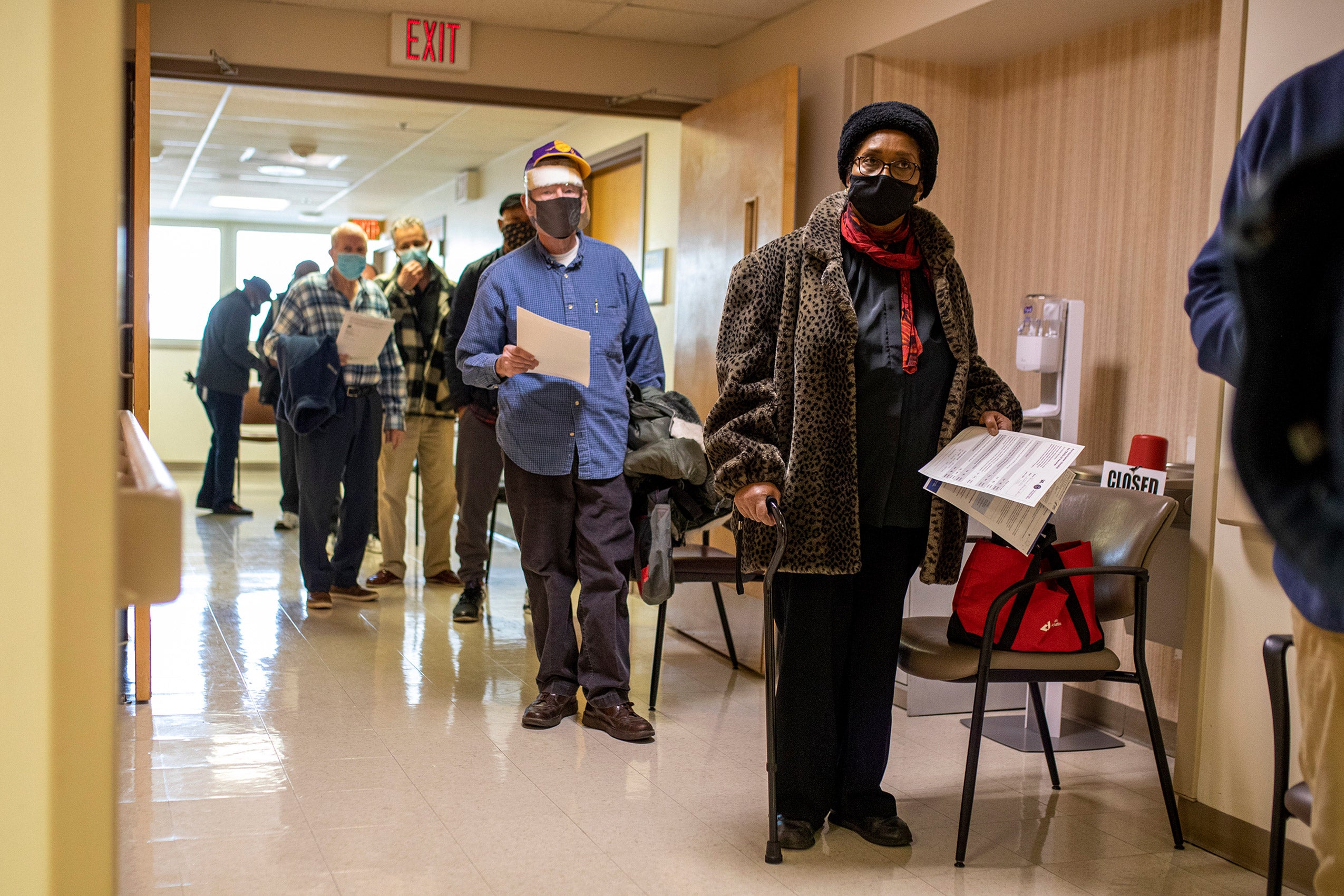People
Susan Crawford
-
Summer 2023 Harvard Law faculty reading recommendations
June 13, 2023
Looking for a summer book recommendation? Check out what these members of the Harvard Law School faculty plan to read — and listen to — this summer.
-
Author Crawford explore link between race, rising waters
April 25, 2023
Harvard professor and author Susan Crawford takes an unflinching look at the intersecting crises of climate change and systemic racism in Charleston in her new…
-
Susan Crawford’s new book focuses like a laser on Charleston for a reason. Here is where one can observe best how a long history of…
-
One City’s Escape Plan From Rising Seas
April 10, 2023
An article by Susan Crawford: Think of Charleston as sitting in a basin of water. A bathtub. As long as the bathtub has 7 feet…
-
The Unequal Racial Burdens of Rising Seas
April 10, 2023
All true climate-change stories are about the abuse of power. Knowing this, Susan Crawford makes a plea for climate justice in “Charleston,” her sweeping case…
-
An article by Susan Crawford: Predictions about how much water is coming vary greatly. Some scientists say we should be planning on three feet of…
-
In a unanimous vote, the Federal Communications Commission decided last week to open apartment and condominium buildings to more broadband competition. A 2008 rule already on the books limited landlords’ ability to enter into exclusive deals with cable and internet service providers, but there were loopholes that effectively allowed providers and landlords to keep renters stuck with one ISP — at whatever price it wanted to charge. The new rule would force landlords to disclose those arrangements and give renters more options. Susan Crawford teaches law at Harvard. She said this move by the FCC is pro-consumer but doesn’t fully address the major issues around competition.
-
14 experts say how the net’s worst problems could be solved by 2035
February 9, 2022
In the early 21st century, the internet—and the social internet, in particular—has enabled a more connected world. But it’s also enabled and amplified some of humanity’s worst behaviors. Fringy, toxic opinions and outright disinformation proliferate. Antisocial behavior is normalized. Facts—when they can be recognized—are used to bolster preexisting opinions, not to challenge assumptions. Kids (and adults) measure their self-worth by their Instagram comments and follower count. Expecting the huge tech companies that operate the platforms to proactively fix the problems gets more unworkable as online communities grow into the billions. ... Susan Crawford, John A. Reilly clinical professor of law at Harvard Law School and Special Assistant to the President for science, technology, and innovation policy in the Obama administration “Someday, we’ll cease to differentiate between on- and offline, just as we have stopped talking about ‘electrified’ life. Much that we now treasure will disappear. But the human spirit is creative and playful—we’ll be up to new augmented shenanigans that we cannot now imagine.”
-
Harvard Law faculty summer 2021 book recommendations
July 1, 2021
Looking for a new book to enjoy at the beach, park, or on your couch? Six HLS faculty members share what they’re reading this summer.
-
Should the internet be treated like a public utility?
April 20, 2021
At the annual Klinsky Lecture, Visiting Professor John G. Palfrey ’01, president of the MacArthur Foundation, says we need a regulatory regime for technology.
-
Calling the shots
March 17, 2021
Disheartened by tales from family and friends frustrated by his home state of Pennsylvania's vaccine distribution system, Seth Rubinstein ’22, a second year student at Harvard Law School, knew he wanted to get involved.
-
There is much to be down about in 2020. Yet, America’s heart broke when the story of two elementary school girls spending hours to complete their homework outside of a Taco Bell made national news. Why were those girls in, of all places, a fast-food restaurant to study? The children did not have internet access at home. Taco Bell was the only place nearby that had a free, stable Wi-Fi connection. Who knew the difference between accessing education during a global pandemic would be found in a fast-food parking lot? America must build better for our nation’s children. Our country can build better for its young...The lack of competition to contest these giant cable corporations’ monopolies destroys any incentive to improve their services, especially in rural areas...Susan P. Crawford, the John A. Reilly Clinical Professor of Law at Harvard Law School, details the actions taken by cable incumbents during Kennard’s tenure as the FCC General Counsel (1993-1997) and Chairman (1997-2001). She states, “The major cable providers in this country do not compete with one another. The operators clustered all cable into regional monopolies during the summer of 1997—Leo Hindery, then-President of Tele-Communications, Inc., and the architect of the effort, calls that summer the “Summer of Love”—pursuing swaps and partnerships that put every market in the United States except four in the hands of a single operator.”
-
Early worries about whether U.S. internet infrastructure could accommodate an unprecedented surge in usage as COVID-19 restrictions pushed tens of millions of Americans to working and learning from home have, for the most part, proven unfounded. However, that new pandemic-induced dependence on robust internet connectivity has shone a light on the stark inequities of broadband access and helped spur a new focus on addressing a long-standing question — why isn’t internet service a public utility with the same support, disbursement and regulation afforded to other basic necessities like water, electricity and telephone service? ... Harvard University researcher Susan Crawford has been investigating internet access issues for years and taken a close look at how U.S. broadband service has evolved as well as alternative approaches by countries in Europe and Asia that have embraced the development of high-speed internet access as a basic — and critical — public utility. Crawford says the models that work best leverage public/private partnerships to get internet infrastructure like fiber optic cable running to every household and business, then opening access to those lines via lease with private sector service providers. The systems, she said, bear a lot of resemblance to how domestic electricity and telephone systems were built out by private entities but backed by public financing and oversight.
-
Why Is America’s Internet So Slow? with Susan Crawford
December 4, 2020
Harvard law professor Susan Crawford joins Adam this week to discuss why America – the country that invented the internet – struggles to provide access to affordable, high-speed internet. She explains why just a few telecom companies monopolize the industry, fiber vs. wireless, the real deal with 5G, and why the internet should become a public utility.
-
Chicago voters faced a simple question on their 2020 ballots: “Should the City of Chicago act to ensure that all the City’s community areas have access to broadband internet?” By a nine-to-one margin, they answered “yes.” The result is significant for what it says about public attitudes toward the internet. In the context of a broader debate about whether we should treat the internet like a public utility, Chicago voters signaled that the most basic formulation of this idea—that the government should make sure citizens have internet access—is overwhelmingly popular...The Chicago ballot measure, by itself, won’t make citywide broadband a reality. The referendum was non-binding, meaning city officials are free to ignore it, and voters only supported internet access in the abstract, without having to actually think through the cost of making universal broadband access a reality. But it does give mayor Lori Lightfoot political cover for more projects like the $50 million public private partnership the city unveiled in July to bring broadband into the homes of 100,000 students...Harvard law professor Susan Crawford argues that the internet must follow the path other basic services, like electricity, took from being a demand-driven luxury to a publicly regulated utility. Governments in South Korea, Japan, Hong Kong, and Singapore made that shift early, and their residents have widespread access to low-cost fiber optic internet. With continued investments in initiatives like Chicago’s broadband project and federal grants for rural internet co-ops, the US could follow suit.
-
The Tech Antitrust Problem No One Is Talking About
October 29, 2020
After years of building political pressure for antitrust scrutiny of major tech companies, this month Congress and the US government delivered. The House Antitrust Subcommittee released a report accusing Apple, Amazon, Google, and Facebook of monopolistic behavior. The Department of Justice filed a complaint against Google alleging the company prevents consumers from sampling other search engines. The new fervor for tech antitrust has so far overlooked an equally obvious target: US broadband providers...Critics of the four companies that dominate US broadband—Verizon, Comcast, Charter Communications, and AT&T—argue that antitrust intervention has been needed for years to lower prices and widen internet access. A Microsoft study estimated last year that as many as 162.8 million Americans lack meaningful broadband, and New America’s Open Technology Institute recently found that US consumers pay, on average, more than those in Europe, Asia, or elsewhere in North America...The Institute for Local Self Reliance, which promotes community broadband projects, recently estimated from Federal Communications Commission data that some 80 million Americans can only get high-speed broadband service from one provider. “That is quite intentional on the part of cable operators,” says Susan Crawford, a professor at Harvard Law School. “These companies are extracting rent from Americans based on their monopoly positions.” ... Crawford and other industry critics say cable companies have used that freedom to erode choice through mergers, and have deployed a deep bench of lobbyists to steer lawmakers to lighten oversight and ban cities from building their own networks. Cities that have done so, like Wilson, North Carolina, generally have higher speeds at lower prices and less restrictive terms, Crawford says.
-
Your internet is terrible during COVID-19 pandemic. But you already knew that, right?
September 22, 2020
It was 8:03 a.m., and the screen of Carlos Cano’s laptop was black. This meant he was three minutes late for his eighth-grade science class. In the next room, beneath a painting of Jesus, Cano’s mother kneeled on the hardwood floor. She was not praying to God. Instead, she faced a white internet router as big as a kitchen blender. She unplugged the power cord, then plugged it in. “Is it working, Carlos?” asked Adriana Medina, Cano’s mother. “Nope,” Cano said. “Oh, come on!” Medina said. “This is supposed to be Verizon’s biggest, fastest router. And every day, it doesn’t work! Why am I paying for this?” As the COVID-19 pandemic forces millions of American families to try online learning for the first time, many are discovering their internet service is not up to the task. Nor is it cheap. Medina has Verizon’s “Fios Gigabit Connection,” supposedly enough broadband to support 100 computers. Along with two cellphones, router rental and other fees, Medina pays $400 every month to connect her family to the world. Yet she can’t even connect to teachers at her son’s middle school, a half-mile away. “I don’t blame the school. I blame the internet service companies,” Medina said. “These people are making billions of dollars during this pandemic, but my kids can’t even go to school.” America, the nation that invented the internet, has terrible internet. Experts who study internet performance find that service in the United States is often too slow for the modern world of constant connection and two-way video chats. “Our telecommunications network, when it first launched, was the envy of the world,” said Susan Crawford, a professor at Harvard Law School who studies internet access worldwide. “Now it’s more like a Third-World nation.” For millions of families, internet service isn’t available at all.
-
Give everybody the internet
September 10, 2020
Since the pandemic set in, Grace Riario and Melissa Morrone have witnessed a similar phenomenon at the libraries they work at in New York: people gathering around to try to catch the wifi outside their doors because indoor service is largely shut down...Riario oversees nine libraries in the Catskills region, where some areas don’t have access to broadband internet at all. Morrone is a supervising librarian in Brooklyn, where even if people do theoretically have access, many can’t afford it. They’re both seeing the real-life manifestations of the so-called “digital divide.” The divide is both rural and urban and tied to both access and inclusion. According to the Federal Communications Commission (FCC), 21 million Americans don’t have access to quality broadband internet, though some estimates suggest that number is much higher, even double. Millions of people simply can’t access broadband because the infrastructure isn’t in place. Then there’s the question of cost — just because a wire runs by someone’s house doesn’t mean they can use it...Many Republicans and Democrats have taken a lax attitude toward the telecom industry, allowing companies to get big and powerful — the Telecommunications Act of 1996 allowed for an enormous amount of consolidation in the industry. On top of that, at the local level, many municipalities have signed franchise agreements with ISPs to wire up their areas, further locking in monopolies with little negotiating power. “If you leave these guys to their own devices, they will divide up markets, consolidate, and charge as much as they possibly can,” said Susan Crawford, a law professor at Harvard and the author of multiple books about the telecom industry. Crawford has long advocated for nationwide high-speed fiber internet, which would allow for basically limitless amounts of data to travel...The good news, Crawford said, is that communities taking the issue of internet access into their own hands may help shame the federal government into a better policy eventually. The bad news is it’s likely to be a “heartbreakingly slow process.”




